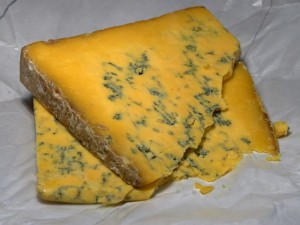Doctors say aged cheese can interfere with sleep

Author: Jonathan Warren
We all know that there are some types of food and drink that just shouldn't be consumed before bedtime. Caffeine, sugar and alcohol are all commonly listed as substances that are known to affect our REM sleep. Cheese, on the other hand, has a reputation for causing unusual dreams, and isn't typically listed among the main culprits of consumables that can cause sleep deprivation.
However, as an American doctor explains in the Arizona Daily Sun, certain types of cheese may prove to be more of an issue than previously thought. The question put to Dr Robert Rosenberg was one that's been on our mind since we last nibbled on a nice bit of blue – does eating aged cheese make it more difficult to get to sleep?
Rosenberg's response caused millions of cheese-lovers hearts to break, as "yes," he replied. "It can."
This is particularly true in the case of aged cheese and meat due to the increased amount of tryamine, an amino acid that's present in the cheese. When digested, this amino acid causes the release of norepinephrine, a hormone that is released to help wake you. This is not an ideal hormone to be releasing into the body before going to sleep, and as such can interfere with the 'fight-or-flight' aspect of our nervous system.
Whilst aged cheese may not cause a problem for some, many could benefit from avoiding the dairy treat close to bedtime. Culprit cheesesinclude varieties of blue cheese like Stilton and Roquefort, hard cheeses like Parmesan and Asiago and particularly smelly cheeses like Stinking Bishop and Limburger.
"I would definitely avoid it close to bedtime if you have problems with sleep," Dr Rosenburg adds.
 Doctors say aged cheese can interfere with sleep
Doctors say aged cheese can interfere with sleep
 Doctors say aged cheese can interfere with sleep
Doctors say aged cheese can interfere with sleep



